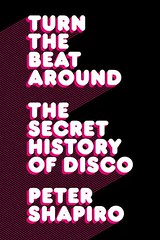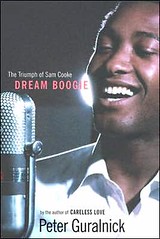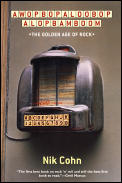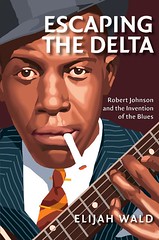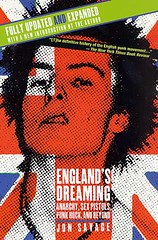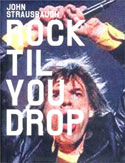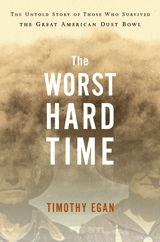Wednesday, October 26, 2005
Tuesday, October 25, 2005
Maybe we can get Mailer to knife someone.
Monday, October 24, 2005
Friday, October 21, 2005
Book dump.
This past summer I read music books like they were going out of style, which perhaps they are. My motivation for this remains fuzzy, but it was somehow spurred by the online discussion of Words and Music at Clap Clap Blog (specific post lost) and elsewhere, a book I was somewhat surprised that I hadn’t heard of, and that I felt weirdly obligated to read. But then, I reasoned, I’ve read so few music tomes to begin with, why start now? And with a university press book, no less. And then suddenly it began, aided by easy access to a few titles courtesy my proximity to the ass-end of the book industry. So here’s a book report, inspired and modeled after Bronwyn C’s similar posts:
TURN THE BEAT AROUND: The Secret History of Disco, by Peter Shapiro
Shapiro’s a Brit, and this ridiculously entertaining investigation into the roots of disco has something of the outsider’s attitude about it. Which is all to the good, because it’d be hard to fathom why anyone would want to read an insider’s guide to disco, the only purpose of which would seem to be the recreation of a velvet rope in book form. Shapiro is crazy in deep with the disco—the first DJs and 12” singles he avidly discusses share almost no DNA with more mass notions of disco that came just before the fall (and that made up my Saturday Night Fever-inflected sense of what the music was); by the time the Village People show up, they seem like players in a different story altogether, a pantomime act. Rather than sway linearly through this story, Shaprio tries on different lenses: first it’s a New York City story, then a musical history, then a gay culture story, then a producer/dj story, a drug story. Even with some timeline to-ing and fro-ing, Shaprio keeps readers on the dancefloor. While he falls back on some stock licks when it comes to describing the music in fine grain detail (I recall a lot of hissing high hats), and almost certainly overstates the role of Northern Soul (if not Georgio Moroder), the depth of his research is impressive. So much of the early disco he describes was so unfamiliar to me that it seemed cruel a companion CD was not made available. One odd factlet: most of the legendary, early disco DJs were Italian-American.
Further reading [ flaska ]
DREAM BOOGIE: The Triumph of Sam Cooke, by Peter Guralnick
Guralnick strives for the definitive. His two-volume Elvis biography is a monumental thing, awesome in its scholarship, evenhandedness, and sensitivity. Rather than take on the legend, it was as if he wanted to reassemble Presley one real-life detail at a time, until a inarguable portrait of the artist as an actual human emerged, Chuck Close-style. He brings this same vigor and immensity of purpose to this Cooke bio, certain to be the ultimate statement on the singer for now and forever. As in the first volume of the Elvis story, Guralnick excels at depicting the creative education and professional rise of a performer on the cusp of fame and greatness. Letting Cooke's friends and family tell large chunks of the story, the language is wonderfully evocative, and Guralnick occasionally fashions a strong sense of drama in describing the phenomenal impact on an audience of the Cooke-era Soul Stirrers. More than once we hear of church ladies "falling out." Guralnick seems to lose interest when things go south, though—and when the end comes with less than fifty pages to go (of 800+) the reader is left bereft, curious about the “triumph” involved, and in need of more context-setting and solace than is provided. But, like the disco book, if reading this doesn’t send you to (re)discover Cooke’s glories, you probably won’t be reading it to begin with. (Full disclosure: Guralnick was the director of the sleep-away camp I attended for three summers back in the ‘80s.)
Further listening [ Dave the Spazz Cooke set from '03; tune in at 2:38 ]
Further reading [ Bk Rail review; Wolk on live set]
AWOPBOPALOOBOP ALOPBAMBOOM: The Golden Age of Rock, by Nik Cohn
Where Guralnick is precision and pointillist portraiture, Cohn, a Brit, is bold strokes and, given his known penchant for truth-stretching, faintly believable hyperbole. This book is Cohn closing the door on rock as a viable form. What makes this unusual is that he wrote it as a twenty-two year old in 1968. It’s a vibrant document of a kid burning with a love for the music as strong as his disillusionment. Cohn has a sharp eye for the inanities of ‘60s rock, particularly given his proximity to the UK scene—his perspective is refreshingly lacking in awe or idle idol worship. Except when it comes to major “who dat?” figure, P. J. Proby, a false god if ever there was one. Cohn seems a journalist with an unerring ability to be where the action is: London in the 60s (this book); New York in the ‘70s (the faux article that became Saturday Night Fever). Most recently he was hanging with New Orleans rappers; his book on the scene, now decimated along with everything else in Katrina’s wake, is being pushed up by his publisher and will arrive next month.
Further reading [ Cohn picks other books; Jeff Chang picks Cohn apart ]
ESCAPING THE DELTA; Robert Johnson and the Invention of the Blues, by Elijah Wald
In a lot of ways the Cohn book is a treatise on pop vs. the rock, without a lot of awareness that such a debate need exist; he found the seam naturally. Wald’s project here is to try to unburden Delta blues, in particular folks blues c. Robert Johnson, from the sepia-toned nostalgia of collectors and aficionados, tastemakers who put a high price on rough-hewn “authenticity,” while entirely missing the boat on what was respected—and moreover popular—back in the day. Wald injects himself into the story, charmingly most of the time, and we travel with him as he searches out old bluesmen for as honest and firsthand a look as possible at the early Mississippi blues scene. Wald is trying to decalcify these performers in much the same way Guralnick did with Elvis, only Wald has more of a mission. There are some itch-making parallels with the indie purists' love of all things unsung, underappreciated, loved for their very rarity and cultish insider qualities [that rustling you hear is my hand going up slowly]. This too is a book about rock and pop, only in this case "rock" stands in for "the Delta blues you've heard" and "pop" for "the Delta blues that was deemed too commerical in its day to warrant your hearing it now."
Further reading [ Wald on his own book, extensively ]
ENGLAND’S DREAMING: Anarchy, Sex Pistols, Punk Rock, and Beyond, by Jon Savage
What is it about these Brits and their need to chronicle rock movements? (cf. Simon Reynolds’ Rip It Up and Start Again, which, when paired with this book, would bring you from 1975 to the 80s without missing a beat, all of punk and post-punk in two handy volumes.) Savage walks slowly through the birth story of the Sex Pistols, larding on amble scoops of British political history and a healthy heap of cultural studies, heavy on the Situationists. Though as detailed as Guralnick's Cooke book—we see the Pistols coming together under Malcolm Maclaren's unsteadying hand in something close to real time—Savage has as much interest in the underlying historical forces and subcultural heavings of the time as the individual players; no Great Man of Musical History template for him. Though occasionally wearying, the overall effect is hugely exhilarating, the musical minutiae clashing with the Greil Marcus-like myth-making to ramp up the (different kind of) tension to the point at which one can begin to sense the immensity of what was at stake in England at the time. The extensive annotated discography at the end is alone worth the price of the book.
Further reading [ no nostalgia ]
ROCK TIL YOU DROP: The Decline from Rebellion to Nostalgia, by John Strausbaugh
A thorough and carefully constructed demolition of the latter day Rolling Stones, Rolling Stone, and the notion that old folks rock. Contains some great take-downs, particularly concerning the giant mausoleum/oxymoron that is the Museum of Rock and Roll, and some great interview material with the likes of White Panther/MC5 ringleader John Sinclair. Another brick in the wall separating rock and pop. Though wanting to distance himself from his Boomer peers who need to convince themselves they can still rock, at any cost, Strausbaugh himself seems stuck in an old frame of mind that pits the collaborative, spontaneously creative hits-be-damned artisty of rock against the premeditated, division-of-labor, hit-making machinery of pop. As M. Doughty tries to teach him in the last chapter, these lines matter less and less. (But how old is Doughty at this point? That Strausbaugh has him stand in for the youth vote only proves the author's point all the more.)
Further reading [ overnight for day ]
Welcome any and all recommendations of life-changing music books....
Son of Congo.
Friday, October 14, 2005
That big old jet airliner just carried him way too far away.
Almost completely blind since birth and plagued by illnesses most of his life, he proved to be a natural musician, singing and teaching himself several instruments. In the late 1960's, he was in a band that opened for big-time acts including the Grateful Dead and Frank Zappa. Blues artists ranging from T-Bone Walker to B. B. King to Bonnie Raitt recognized his talents, hiring him to play guitar in their bands.
In 1971 Mr. Pena moved to San Francisco, where he played many gigs, frequently opening for Jerry Garcia's and Merle Saunders' bands. Mr. Pena became interested in throat singing when he heard a Tuvan broadcast on his shortwave radio in 1984. Later he found a Tuvan record, playing it countless times until he learned how to throat sing, which involves producing several distinct vocal-cord sounds simultaneously. In 1993 he demonstrated his technique to Kongar-ol Ondar, one of the foremost throat singers in the world. Mr. Ondar was impressed with Pena, nicknaming him Earthquake and inviting him to Tuva to participate in the annual competition.
His 1995 journey to Tuva, where he won awards in the contest and charmed local residents who were delighted with this foreigner who had mastered their art form, is recounted in Genghis Blues.
Genghis Blues was a documentary Pena made about his Tuvan experiences, and it was nominated for an Oscar in 1999. Keep on keepin' on....
Monday, October 03, 2005
Recent faves from hither, yon.
“I’m not anythingggg! -- I’m just inscrutable and shit!”
Katrina-inspired radio show:
Doug Shulkind paying his respects and dreaming of the masters during "Give the Drummer Some," on WMFU, September 2d. Shulkind fits in, inter alia, the whole of the Mayor Ray Nagin/Garland Robinette interview on WWL-New Orleans (around 2:18 into Shulkind's show), which segues devastatingly into James Booker's "Make a Better World." Not a benefit, a beautiful, heart-breaking elegy.
DVD reissue:
On the heels of No Direction Home, the Murray Lerner documentary Festival, a remarkable (and remarkably compact) chronicle of the Newport Folk Festival from 1963 to 1966, is going to see the light of day on DVD later this month. The Lerner footage provided some of the performance highlights of the Bob'n'Marty Show. Saw this years ago on a small big screen, and recall a burning Howlin' Wolf segment and some phenomenal people-watching. That pre-hippie, post-beat look adopted by the cool set c. '64 was probably the closest the US came to having its own mod moment. Festival offers perhaps the only extant evidence that Joan Baez was once hot. Lerner later captured the 1970 Isle of Wight festival on film; it's called Message to Love, and features, among many memorable moments, a stunningly ineffective Joni Mitchell wig-out. [ via ]
Kiwi rock:
The Bats are back.
Inaccessible rock:
In 1979, the members of Nurse With Wound, Steven Stapleton, John Fothergill and Heman Pathak, compiled a roll call of their favorite "outsider" musical artists to include with their first album, Chance Meeting on a Dissecting Table of a Sewing Machine and an Umbrella. No other details were provided, just 300 or so names in block type. The second version of the list included several newly added names, and came with the To the Quiet Men From a Tiny Girl LP in 1980. Stapleton and co. knew not what they hath wrought; the so-called Nurse With Wound List has since become a scavenger hunt of holy grails for fanatical collectors of Krautrock, progressive rock, psychedelic, post-punk, jazz, free improvised and experimental music.... So begins 'FMU's William Berger's three-part MP3 compilation/public service announcement...with glockenspiel. Part one. Part two. Part three. Please excuse me while I bathe myself in the bitter tears of rock snobs who spent their paper route money and countless stanky hours trolling record fairs looking for this stuff.
Postage stamp mega-event:
Would we lie?
Educational music blog post:
Before you exclaim, "hey, I love that song in the new HP camera ad" and rush off to Soulseek, hastily casting yourself in the horrid yellow light of advert-music-know-nothing, I implore you....
